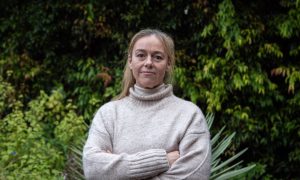The Commonwealth Government has today announced the new National Fetal Alcohol Spectrum Disorder (FASD) Strategic Action Plan 2018-2028, together with additional funding of more than $7 million. The plan was revealed by Health Minister, Greg Hunt, in a video address to delegates attending the 2nd Australasian Fetal Alcohol Spectrum Disorder Conference (FASD2018).
Department of Health Assistant Secretary, David Laffan, addressed the Conference this morning on behalf of Minister for Indigenous Health, Ken Wyatt and provided further detail regarding the plan.
In his speech, published in full below, Mr Laffan identified the three key aims of the plan, and further detail regarding the new funding.
Good morning everyone,
I acknowledge the traditional custodians of the land on which we’re meeting and pay my respects to Elders past and present.
I would like to apologise on behalf of Minister (Ken) Wyatt, who had hoped to be here this morning but was called to a meeting outside of WA at late notice. Minister Wyatt sends his apologies, along with his best wishes for a successful and fruitful conference. He has asked me to deliver a speech on his behalf, and the Minister commends the organisers and looks forward to hearing the outcomes of the conference.
I thank our Master of Ceremonies for his welcome and thank the Conference co-chairs Professor Carol Bower and Professor Elizabeth Elliott for their work in bringing this important conference together. The program promises a very interesting couple of days. The Australian Government is very proud to be a major sponsor.
I acknowledge the many prominent national and international experts gathered to discuss this important issue. I would also like to acknowledge the Chair of the Australian National Advisory Council on Alcohol and Other Drugs, Kay Hull, and other members of the Council.
FASD is an issue that Ministers have a high degree of interest in. In a conversation with Minister (Greg) Hunt yesterday he referred to the issue of FASD as a key project. At a recent Roundtable – that Professor Elliot attended – he spent considerable time talking with participants about his support for FASD issues and the work to be done.
I can also say, that in a recent stint that I spent working for Minister Wyatt, that he has a high visibility of, and a strong interest in, FASD issues. When turning his mind to FASD and its associated problems, the Minister approaches it with mixed emotions.
Sadness – because the story of FASD in this country is a tragic one. It’s an entirely preventable condition. It doesn’t have to happen. But also hope – because of community-driven successes, and the unprecedented support the Australian Government is providing for the fight against the condition.
As you heard on Minister Hunt’s video earlier, he is pleased to announce the new National FASD Strategic Action Plan.
The intention of the National FASD Strategic Action Plan is to provide a clear statement of agreed national priorities and opportunities to improve the prevention, diagnosis, support and management of FASD in Australia.
Importantly, the Strategic Action Plan also establishes a new National FASD Advisory Group who will report to the National Drug Strategy Committee on the progress being made against the aims of the Action Plan, promote successful models and highlight emerging issues and evidence. This will be a key step for governments to ensure what we are doing is working.
It was just under two years ago that the Commonwealth convened a national stakeholder Roundtable in recognition that the existing action plan was coming to an end. It was an opportunity to take stock, reflect on successes and also the things that hadn’t been addressed.
The discussions also confirmed that a more strategic approach was needed to tackling FASD across the full range of issues – from prevention to support; across a person’s lifespan; and across the full range of government services.
We undertook a national consultation process that saw this need confirmed by families and carers, service providers, organisations, researchers and clinicians and government agencies.
The findings of the consultations were then taken through to the National Drug Strategy Committee and ultimately the ministerial drug and alcohol forum, recognising that for a national strategic approach to have any success we needed joint ownership between the Australian government and the states and territories. I am pleased that the final product being launched today strongly reflects a national consensus and agreement on what our priorities should be over the next decade.
I would like to acknowledge many of you who contributed strongly through stakeholder consultation in developing the Plan – which was key for us in identifying priorities and gaps. – I hope that the final product reflects the issues you raised and gives hope that your concerns have been heard, understood and acknowledged.
I would like to acknowledge the efforts of my team in the Alcohol Tobacco and Other Drugs Branch who initiated and drove the development of the Strategic Action Plan.
Fundamentally the Strategic Action Plan acknowledges the important partnerships that have been established across this sector – and I note that the conference theme “Our Science, Our Stories” resonates strongly with this.
The framework of the strategic action plan is built around three key aims:
- Reduce the prevalence of FASD;
- Reduce the associated impact of FASD; and
- Improve the quality of life for people living with FASD.
The strategic action plan seeks to deliver on these aims by taking action across four national priorities;
- Prevention
- Screening and diagnosis
- Support and management
- Priority groups and populations at increased risk.
The launch of this new Strategy represents the start of a new journey, where we would like to continue to build on the successes and momentum that many of you have built over the last few decades, look at what is happening internationally for what might be applicable for Australia, support innovation in the way prevention, services and support are being provided and continue to support the growth of evidence and raise awareness about FASD.
As Minister Hunt mentioned, the Australian Government has announced more than $7 million in new funding to support projects that align with the direction of the Strategic Action Plan. This funding is available from 1 July next year.
This new funding will build on the investment and the successful projects that are already on the ground running, where the Government has already provided $19.7 million over the last six years.
This funding has supported:
- the development and dissemination of the Australian Guide to the Diagnosis of FASD;
- the National FASD Register;
- the FASD Hub providing online access to a range of resources, research and directory of support,
- support for NOFASD to provide online and telephone support services,
- the Foundation for Alcohol Research and Education in delivering the successful What Women Want to Know and Pregnant Pause programs,
- a range of new diagnostic services and community models of care across the country.
As you’ve heard from the Minister, the issue of FASD is an ongoing priority for the Government, which is evidenced by his announcement of new funding.
The new funding is a strong signal of an immediate commitment to the Strategic Action Plan, with funding provided across each of the priority areas that it outlines.
I am pleased to be able to provide some more broad details about what the new funding will be directed towards. I’m sure you will appreciate that I am not able to go into individual program or project detail at this stage – as this will be subject to appropriate government and departmental processes.
New funding will include:
- Around $1.5 million for prevention-related activities, including new consumer resources and general awareness activities – and support for National FASD Awareness Day, translation and promotion of alcohol consumption guidelines, and point of sale promotion activities.
- $1.2 million for new screening and diagnosis activities, which will include reviewing existing tools and guides and developing new tools and referral pathways to assist professionals in non-health settings.
- $1.2 million goes to management and support activities, including tailored resources for people working in educational, justice and policing sectors.
- A further $1.3 million for priority group activities, including cultural adaptation of best practice resources that meet local needs.
- And finally, $1.6 million is being made available to continue some of the existing activities that I have previously outlined.
Finally, I would like to highlight the comprehensive evaluation framework component of the strategic action plan.
The plan calls for ongoing monitoring, with formal reviews being undertaken across its lifespan.
Importantly the evaluation framework will consider data, qualitative and quantitative, draws on expert opinion, activity level reports and individual program evaluation findings and research findings.
Through the new FASD advisory group we expect to continue looking at emerging issues and gaps to make sure the strategic action plan is an active and living national framework – there is no intention for this to become a document that just sits on a shelf – we are committed to seeing constant improvements in this important area.
Minister Wyatt has said that it’s time to acknowledge the scale of the FASD issue in this country and to make a greater effort to address it.
This is what the Australian government is doing.
This is what you are doing as a conference.
All of us, are part of the solution. By working together, we can prevent FASD in Australian communities – protecting future generations and giving children the best start possible.
Thank you.







